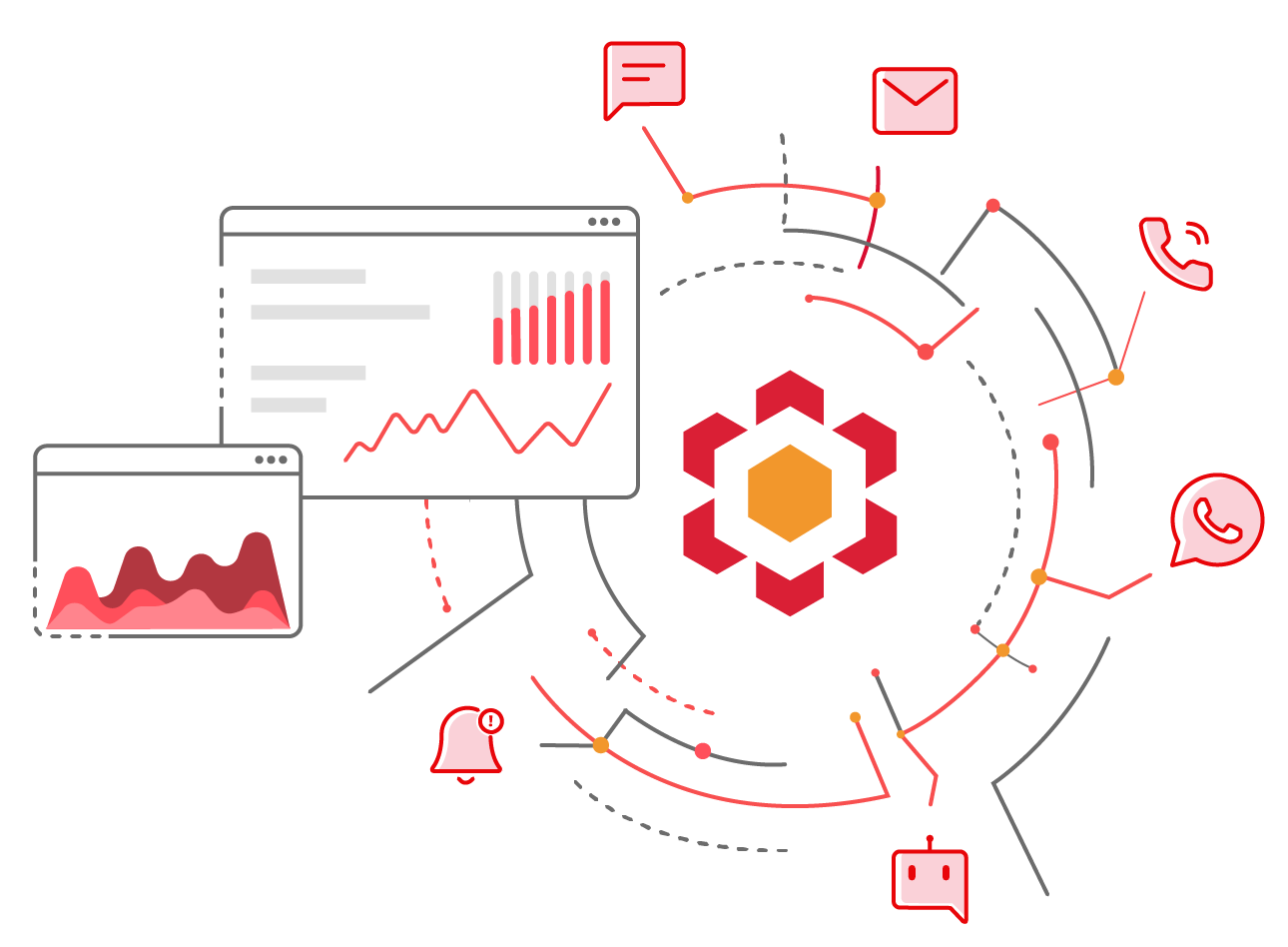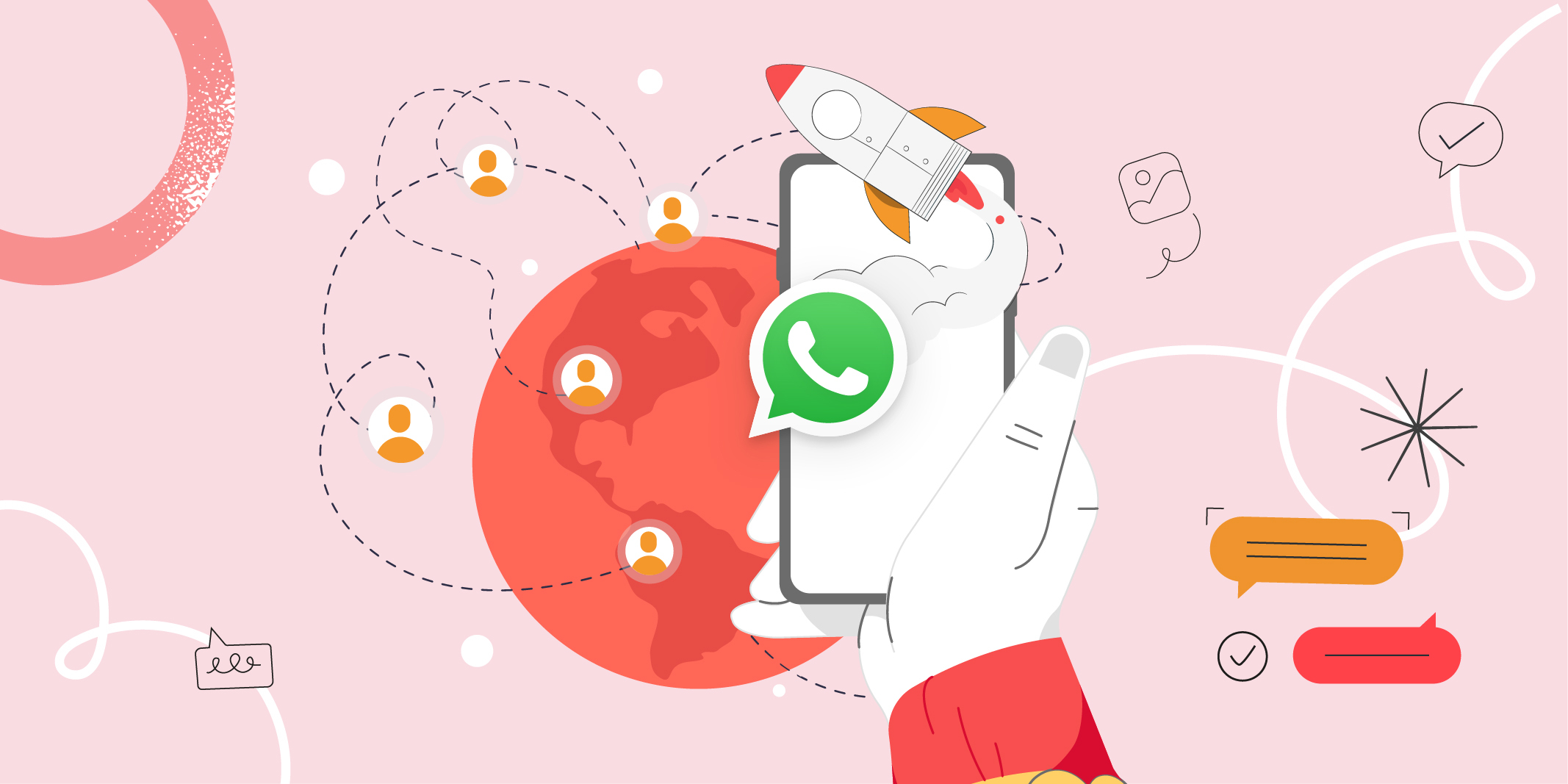
Today, customers crave meaningful, real-time interactions with the brands they patronize. They want to engage on platforms they use daily, where they share their life’s snapshots, make plans with friends, and even conduct business. One platform that stands out in this shift is WhatsApp.
With a global user base exceeding 2 billion as of January 2023, WhatsApp has become a crucial channel for business communication worldwide. Its expansive user base and impressive engagement rates make it a prime platform for businesses aiming to connect directly with their customers, fostering a more intimate and dynamic interaction.
In the United States alone, 68 million people harness the capabilities of the app. More businesses are strategically leveraging this user base to drive their growth. The spectrum of use cases ranges from local retailers efficiently handling customer queries through WhatsApp Business to large-scale enterprises seamlessly integrating the WhatsApp Business Platform into their sophisticated customer service systems.
This blog will explore the increasing significance of WhatsApp in various business functions, showcase how certain brands are leveraging the app, and provide insightful tips to maximize its potential.
The Benefits of Using WhatsApp for Business
With its vast global user base and a host of features tailored for businesses, WhatsApp offers a unique opportunity for businesses to connect with their customers in a more personal and engaging manner.
Here are some benefits of using WhatsApp for business communication:
Expands Your Global Reach
More than half of all WhatsApp users in the US use the app at least once a day, with over 60% of them checking it several times a day. WhatsApp provides an unprecedented opportunity for businesses to expand their global reach.
It offers a platform to communicate directly with international customers, breaking down geographical and linguistic barriers. Whether you’re an American company aiming to reach customers in Europe, Asia, or South America, WhatsApp facilitates this expansion, increasing your potential customer base exponentially.
Improves Customer Experience
Customer experience is at the heart of every successful business. With the WhatsApp Business, you can significantly enhance this critical aspect of your operations. Customers prefer quick, direct, and efficient responses, and WhatsApp’s real-time, rich communication capabilities deliver exactly that.
The ability to provide instant support, share product information directly, and offer a secure communication platform greatly improves the customer experience.
Enhances Employee Satisfaction
Effective internal communication is just as crucial as external communication for a business. WhatsApp’s intuitive and user-friendly interface makes it an excellent tool for internal communication.
Employees can quickly share updates, collaborate on projects, and even conduct virtual meetings. This streamlined communication can improve productivity and, consequently, enhance employee satisfaction.
Personalizes Engagement
WhatsApp allows for a range of interaction types – from text messages to voice notes, video calls, and document sharing. This diverse communication spectrum gives businesses the flexibility to engage with customers in a personalized, rich manner.
Whether it’s a quick text response to a query, sharing a product catalog, or setting up a video call to discuss more complex issues, you can tailor your customer engagement as per your customer’s preference and needs.
Creative Ways to Utilize WhatsApp for Business Success
Harnessing the power of WhatsApp for business goes beyond basic messaging. The platform offers a multitude of features that, when used creatively, can significantly enhance your business operations and customer engagement.
Here are some innovative ways to utilize WhatsApp for business success.
Optimize Your Profile
Your WhatsApp Business profile is the first point of contact for your customers on the platform. Make sure it’s fully optimized to provide essential information. Use a recognizable profile picture, such as your company logo, and ensure your “About” section communicates what your business does. Include your operating hours, location, and a link to your website to make it easy for customers to connect with you.
Use Digital Catalogs
WhatsApp allows you to create and share digital catalogs of your products or services directly through the app. These catalogs act as a virtual storefront where customers can easily browse your offerings.
You can include images, prices, descriptions, and product codes for each item in your catalog. This convenient feature offers an engaging shopping experience for your customers right at their fingertips.
Provide Customer Support
Integrating chatbots is one of the most innovative ways to utilize WhatsApp for business success. Chatbots can handle routine inquiries and tasks around the clock, offering immediate responses and, thus, improving customer service.
They can help users track orders, answer product-related queries, schedule appointments, and more, reducing the workload on your customer service team.
Share Content via the Status Feature
The Status feature of WhatsApp allows you to share updates, promotions, and behind-the-scenes content with your customers in an engaging format. You can also create stories using text, photos, videos, and GIFs.
Since Status updates disappear after 24 hours, they create a sense of urgency, encouraging customers to interact with your content.
This feature is handy if you want to quickly share updates with a larger audience in a visually engaging way.
Develop Creative Marketing Campaigns
WhatsApp can be an excellent platform for creative marketing campaigns. You can organize contests, share exclusive discount codes, or conduct surveys to engage with your customers.
You can also use the broadcast feature to send out personalized promotional messages to segmented contact lists, thereby improving the effectiveness of your marketing campaigns.
Replicate Core Business Processes
WhatsApp is a versatile platform that empowers you to replicate and streamline your core business processes. From booking appointments to providing quotes, confirming orders, sending invoices, and more, you can leverage its centralized capabilities to enhance efficiency and deliver a seamless and convenient experience for your valued customers.
Level Up with Ads
While WhatsApp doesn’t display ads, you can use Facebook’s ad platform to create ads that direct people to your WhatsApp Business account. This can be a great way to increase your reach and attract new customers.
These click-to-WhatsApp ads can be an effective way to promote your products, events, or services, boosting your overall marketing strategy.
7 Essential Features for Your WhatsApp Business Account
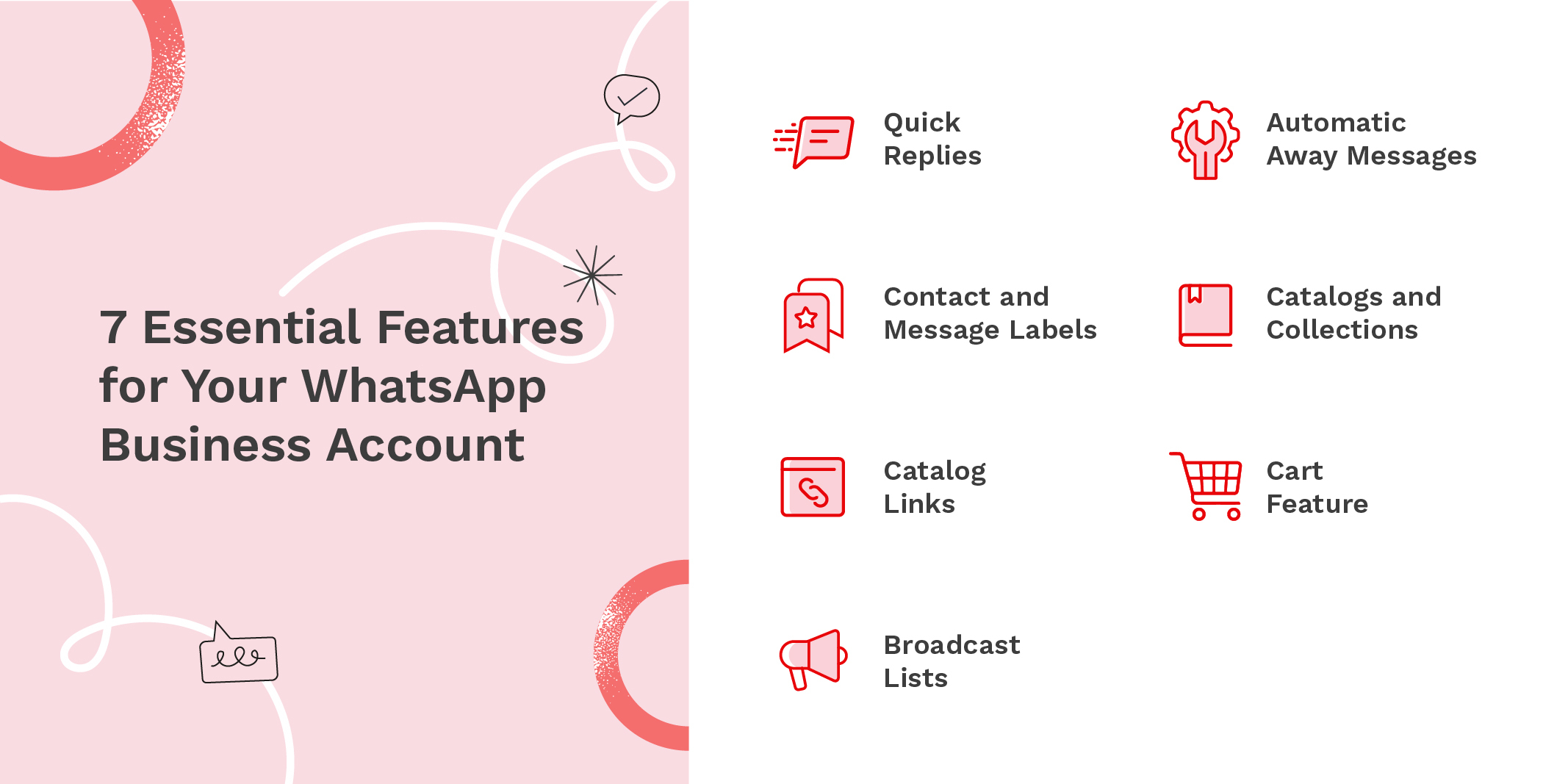
Setting up a WhatsApp Business Account is the first step in leveraging this powerful platform for your business. To truly maximize its potential, it’s crucial to understand and utilize its features.
Here are seven such features that you can utilize to maximize your presence on WhatsApp.
1. Quick Replies
Quick replies streamline customer interactions by efficiently addressing frequently asked questions like business hours or product availability. You can set up quick replies in the Business Tools section, creating up to 50 unique responses easily accessible via keyboard shortcuts.
Pro tip: Start with a handful of quick replies and expand as you identify recurring customer queries. This approach ensures you can easily recall and use the replies during customer interactions.
2. Automatic Away Messages
Away messages allow you to manage customer expectations without being available 24/7. Use them when customers reach out outside business hours, during holidays, or when you’re experiencing high message volumes. When setting up an away message, be clear about when customers can expect a response to enhance their experience.
3. Contact and Message Labels
Use labels to organize your incoming messages and contacts, similar to how you’d label emails. If you aim for quick response times, create a dedicated label for unresolved issues to keep them at the forefront of your attention.
4. Catalogs and Collections
Boost your social commerce sales by creating an inventory catalog within the app. Customize each listing to fit your sales process. You can also enhance customer browsing by organizing your catalog into collections, such as holiday-specific items or products on sale.
5. Catalog Links
Once your catalog is set up, you can share item links with customers during conversations. Use this feature to respond to specific item inquiries, suggest alternatives for out-of-stock items, or inform loyal customers about sale items.
6. Cart Feature
While your WhatsApp Business catalog can drive customers to your site, you can also optimize the in-app shopping experience with the cart feature. Enable the Add to Cart option in your catalog, and customers can complete their transactions within the app.
7. Broadcast Lists
When a customer adds your business to their WhatsApp address book, you can include them in a broadcast list. This feature lets you send the same message to multiple customers at once, saving you time and effort. However, use it judiciously and in line with marketing best practices to avoid alienating customers.
By strategically using these features, you can enhance your WhatsApp Business strategy, improve customer communication, and drive business growth.
WhatsApp Business Account vs. WhatsApp Business Platform
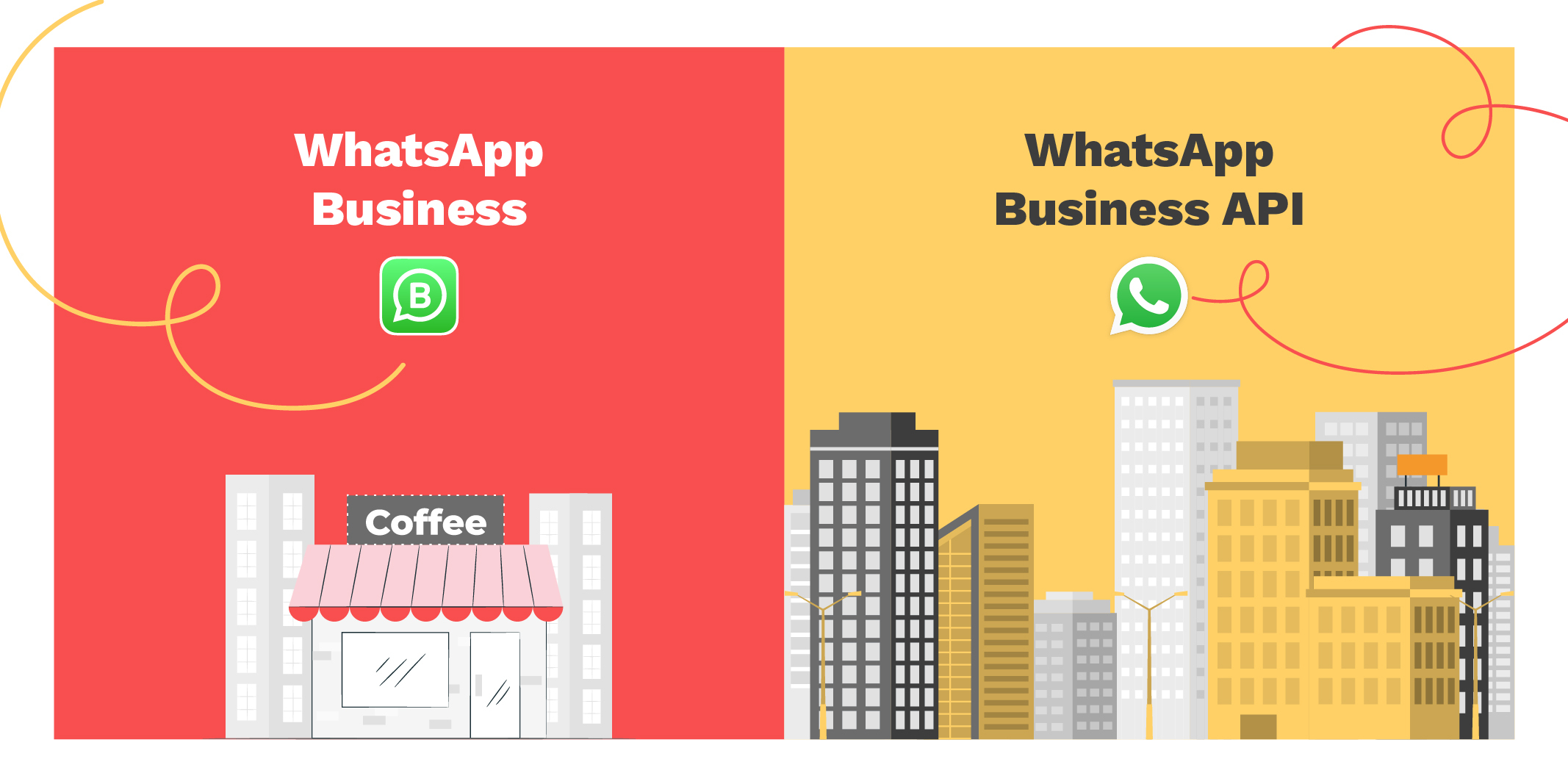
When it comes to leveraging WhatsApp for business, two main options are available: the WhatsApp Business Account and the WhatsApp Business Platform. While both are designed to enhance business communication, they cater to different needs and scales of operation.
WhatsApp Business Account
The WhatsApp Business Account is a standalone app for small to medium-sized businesses. It provides a range of features to facilitate business communication, such as a business profile, quick replies, labels, and catalogs. This app is user-friendly and requires no technical expertise to set up or manage.
The WhatsApp Business Account is ideal for businesses that handle a moderate volume of customer interactions and have a single user managing the account. It allows for direct, real-time customer communication and offers a more personalized approach to customer service.
WhatsApp Business Platform
On the other hand, the WhatsApp Business Platform is designed for larger enterprises that handle a high volume of customer interactions across multiple service channels. The API allows businesses to integrate WhatsApp messaging into their existing customer service or CRM systems.
The WhatsApp Business Platform supports automation and can handle complex workflows, making it ideal for businesses with advanced customer service needs. It allows for features like automated responses, chatbots, and bulk messaging. However, it requires technical expertise to set up and manage.
The choice between a WhatsApp Business Account and the WhatsApp Business Platform depends on your business size, the volume of customer interactions, and your technical capabilities. Both options offer unique advantages and can significantly enhance effective business communication.
How Brands Use WhatsApp Business Platform
WhatsApp Business Platform has revolutionized the way brands communicate with their customers. It provides a real-time, secure, and efficient communication platform, making it a preferred choice for many businesses.
Here are some ways brands are leveraging WhatsApp for business:
1. Customer Service
According to Zendesk, a staggering 69% of customers attempt to resolve issues independently. Surprisingly, only one-third of companies offer self-service options like FAQs or knowledge bases. With the WhatsApp Business Platform, businesses can now provide a self-service channel with pre-defined responses to frequently asked questions. By embracing this cutting-edge technology, organizations can elevate customer support and satisfaction.
Automation enables businesses to eliminate long queues and reduce delayed responses. Instead, you can deliver prompt and efficient support through messaging platforms. For instance, by leveraging WhatsApp, you can seamlessly deploy chatbots to address commonly asked questions and effortlessly direct intricate queries to support agents when necessary.
KLM Royal Dutch Airlines is an example of how businesses can provide exceptional customer support even after sales. The airline offers passengers the option to receive flight-related messages via WhatsApp during their booking process. With the help of a chatbot, KLM provides support to its customers in ten different languages throughout their journey, from booking confirmation to answering their questions.
Booking Confirmation:
Immediately after booking, customers receive a confirmation message and a PDF document containing their booking details.
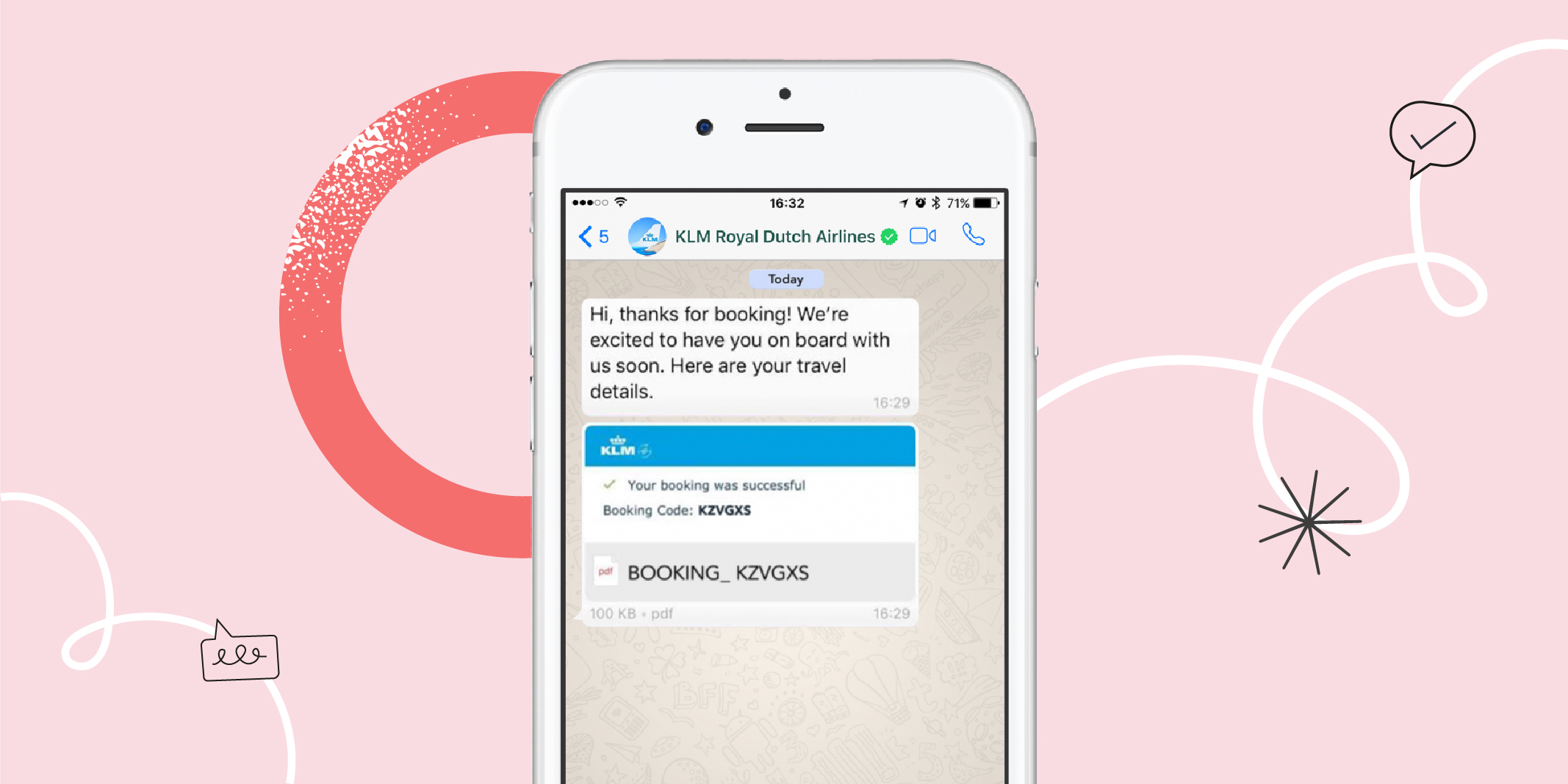
Check-in Information and Boarding Pass:
Customers are informed about the flight’s check-in process and provided with a link to do their online check-in.
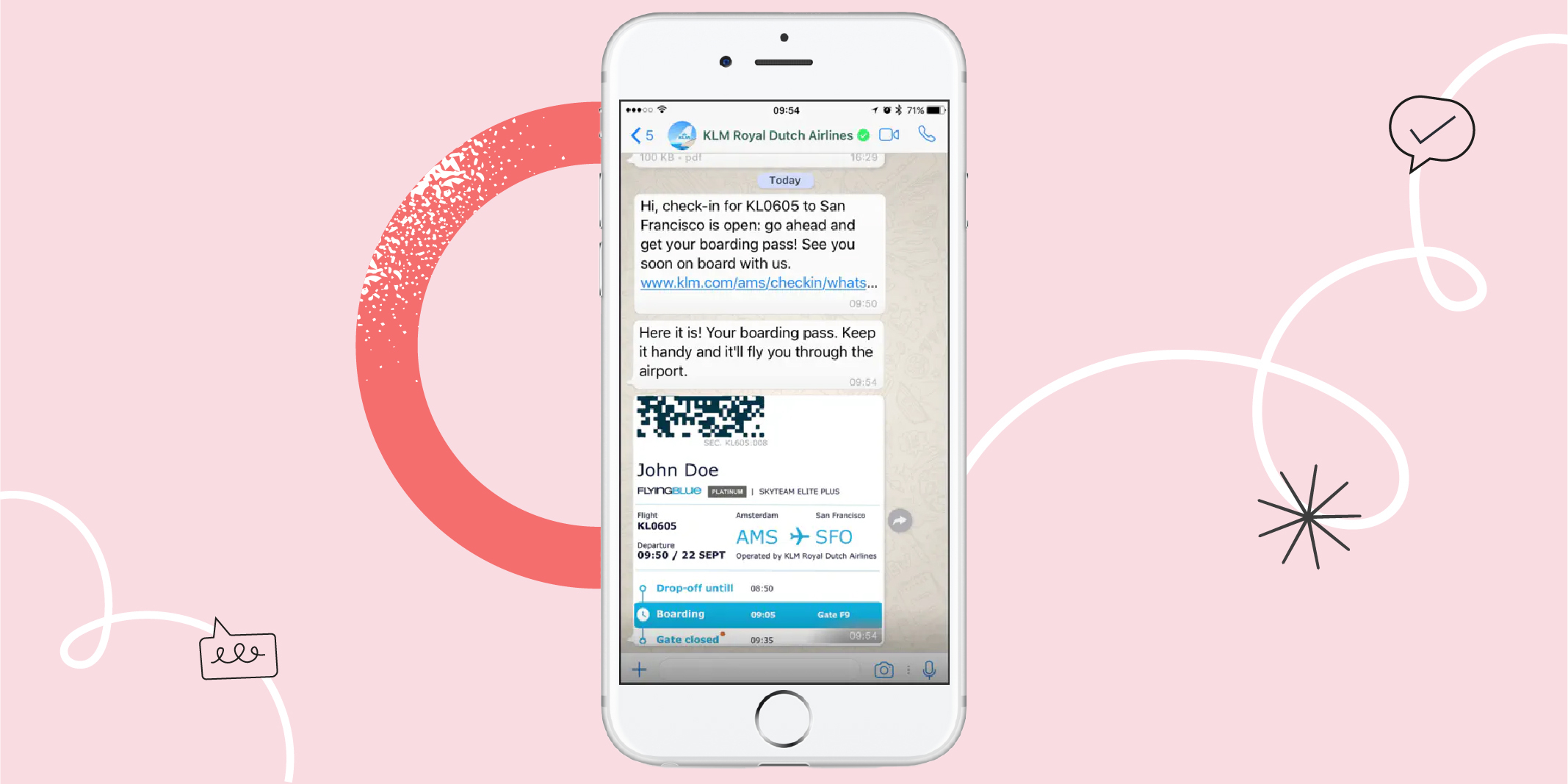
Flight Change Notifications:
KLM notifies customers of any changes to their flight, such as delays.
24/7 Customer Support:
KLM offers customer support on WhatsApp around the clock and helps customers with their flight-related queries.
KLM’s use of WhatsApp for customer support is a great example of how businesses can make the customer experience hassle-free by centralizing all interactions on their favorite messaging app.
2. Financial Services
Using WhatsApp, financial institutions can efficiently manage conversations, gain insights, and assist customers. The WhatsApp Business Solution streamlines operation, enhances convenience, and facilitates processes like KYC updates, account opening, and fraud reporting. It also provides notifications on OTP, transaction alerts, and more.
Leveraging WhatsApp empowers the finance industry to meet expectations, optimize operations, and deliver a seamless experience.
Here’s an instance of how Prestivalore, an Italy-based credit lending company and a client of the global CPaaS provider Kalyera, uses the WhatsApp Business Platform to process loan applications.

PrestiValore aimed to streamline its credit consultation process and efficiently review loan applications to ensure a hassle-free experience for its customers. By integrating the WhatsApp Business Platform, the brand successfully managed the entire application, review, and approval process.
As a result, PrestiValore witnessed a significant increase in loan requests received via WhatsApp. The lending firm also simplified the document submission procedure for C-ID validation and loan eligibility review, allowing customers to conveniently send personal IDs and salary slips through WhatsApp messages. This enhancement improved the overall customer experience and expedited the loan application process.
3. Marketing Campaigns
Marketing campaigns have become more personalized and effective with the WhatsApp Business Platform. Brands can now reach out to their customers directly, understand their preferences, and tailor their marketing messages accordingly. This has led to higher engagement rates and improved return on marketing investment.
Unilever, a multinational consumer goods company with about 400 brands, wanted to launch its new fabric softener, Comfort, in Brazil at a low cost. They adopted a unique messenger marketing approach by putting up over 10,000 billboards around São Paulo with a WhatsApp number and a message that said, “I’ll bring you back your beloved clothes.”

When people messaged the number, they were greeted by a chatbot called “MadameBot,” which gave tips on how to care for their clothes and introduced them to new products using videos and images. At the end of the chat, people received a 50% discount on the new product with free shipping.
The campaign resulted in a 14x increase in sales and received 290K messages from 12 thousand unique customers. Unilever used WhatsApp Business Platform with platforms that allowed them to create chatbots for WhatsApp, making it easy to execute the campaign.
WhatsApp allowed them to send text, images, videos, docs, and GIFs, which made interactive conversations possible. They also had real human beings intervene in the chat when required.
4. Human Resources
WhatsApp provides a convenient channel for candidates to apply and communicate with recruiters, improving the efficiency of recruitment and onboarding processes for brands. Candidates can easily apply through mobile devices, and real-time communication enables faster response times.
The API can also be used for onboarding, sharing essential documents, and managing feedback. This helps improve employee engagement and satisfaction while providing valuable insights for companies.
BASF Group, a multinational chemical production company based in Germany, has integrated WhatsApp into its recruitment strategy. They’ve developed Anilina, a digital career assistant in the form of a chatbot, to provide information about the company, its culture, and job opportunities.
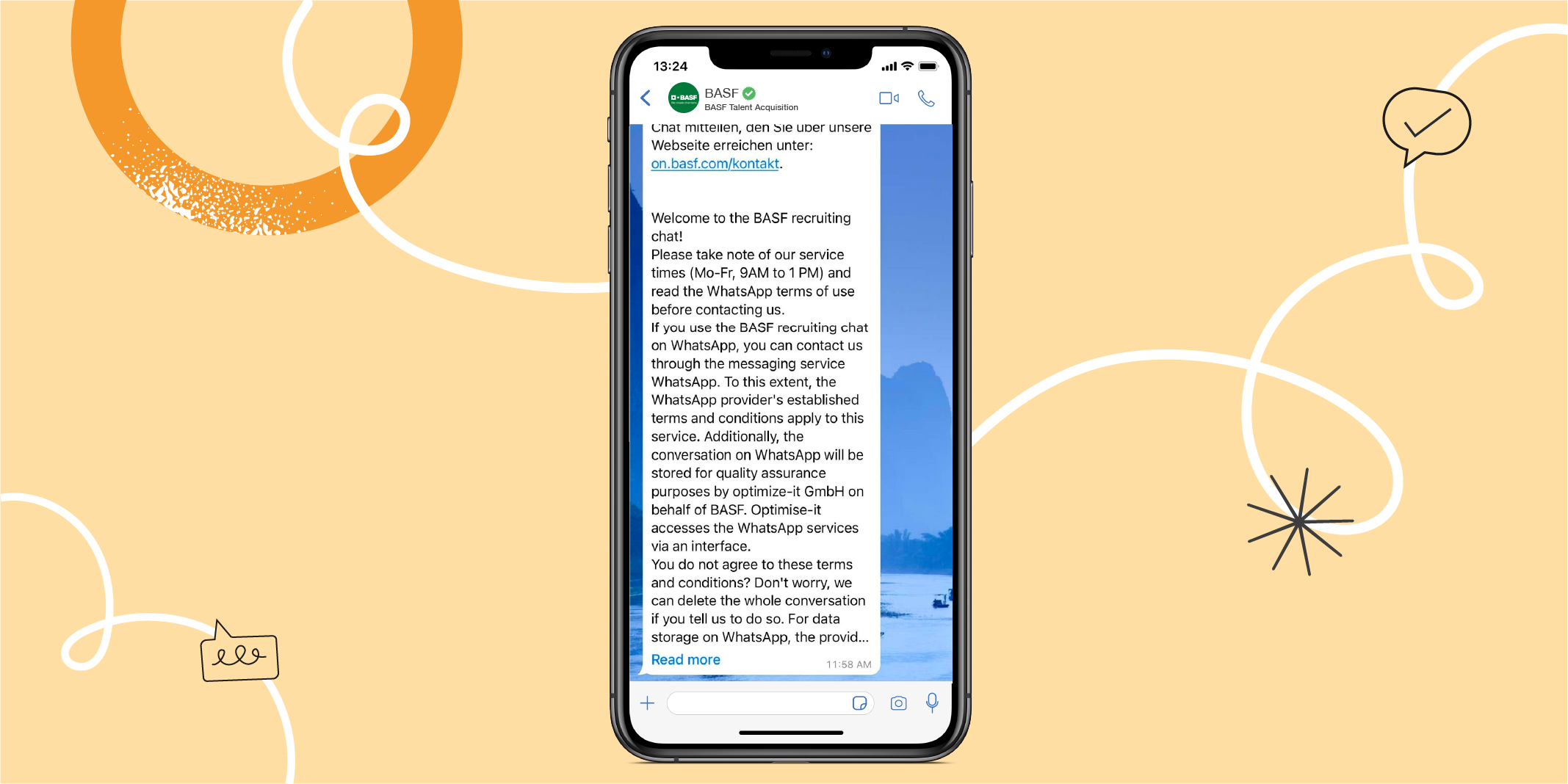
The chatbot is available 24/7 worldwide and understands natural language. For more detailed discussions, candidates can connect with company representatives via WhatsApp chat on weekdays. This interactive approach enhances access to information and fosters positive relationships with potential hires.
5. Pipeline Growth
Brands can leverage the WhatsApp Business platform to boost their pipeline growth by utilizing its powerful messaging capabilities. With features like automated messages, quick replies, and labels, brands can effectively communicate with customers and send promotional messages, product updates, and special offers directly.
This simple and secure platform enables customers to easily place orders and make payments, enhancing the purchasing process and increasing the chances of customer retention. Harnessing the potential of messaging empowers brands to curate a personalized customer experience, thereby fueling the expansion of the sales pipeline.
A prime example of this is Centaline Property, one of Hong Kong’s largest real estate brokerages, which uses WhatsApp to qualify leads more quickly and increase its sales pipeline. The company integrated the network with its property recommendation engine, allowing leads to be funneled to the appropriate agent, along with each customer’s information and communication history.
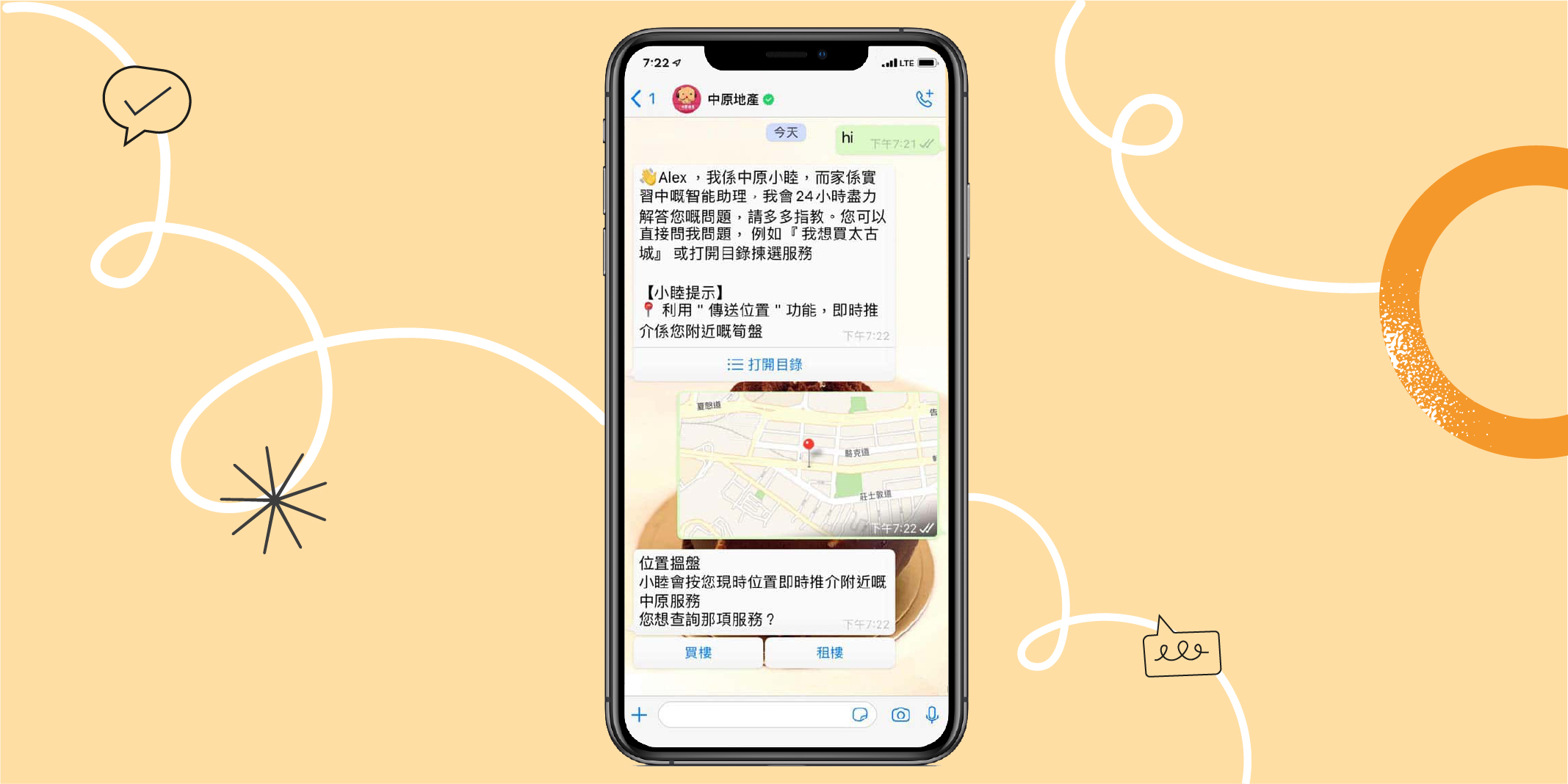
By leveraging key WhatsApp features like List Messages and Reply Buttons, Centaline Property was able to personalize its outreach, resulting in a 27% increase in sales conversions.
This showcases how WhatsApp Business can be used as a direct sales and support channel, streamlining the sales process and contributing to pipeline growth.
Final Thoughts
WhatsApp Business opens up a world of business transformation opportunities. When put into practice, marketers can find new ways to communicate with their consumers, improve how they process orders and payments, and be available to answer questions quickly from the convenience of their homes or offices.
By leveraging the connectivity that this versatile messaging platform provides, businesses have the potential to take communication strategies to the next level. With reliable customer service options across your website, app, email, and WhatsApp now being direct channels for your customers, it is apparent that investments into implementing these strategies are a smart choice for any business looking to stay relevant in an ever-changing market.

Harish Thyagarajan
Content Marketer
Supercharge Your Communication!
Get in touch with our experts who strive hard to bring the very best in cloud communications technology to you.
